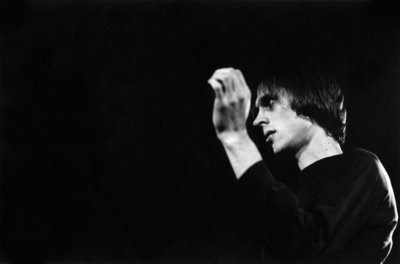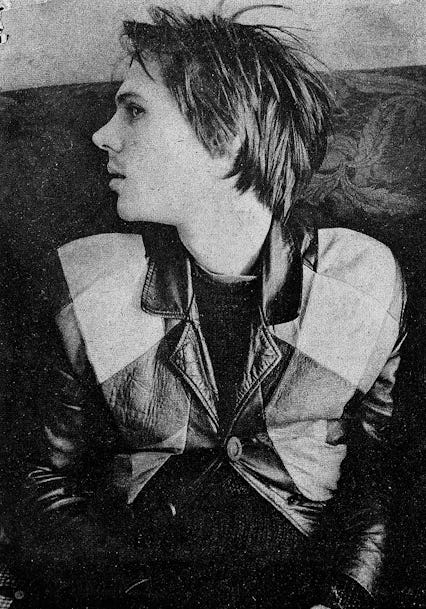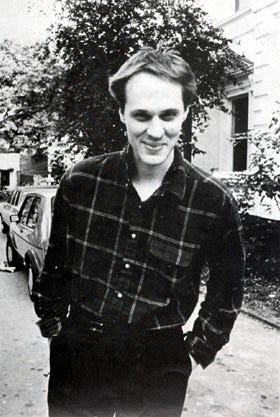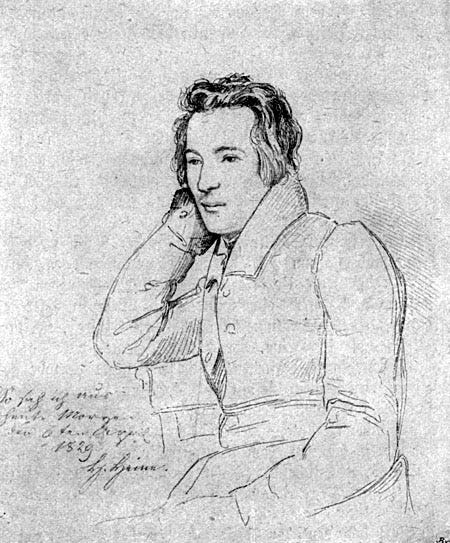Tom Verlaine
Tuesday, December 21, 2021
I have heard of the band “Television” and was an immediate fan, even though I never listened to their music at the time. I remember seeing a photograph of Tom Verlaine and Richard Hell, around 1974, in Andy Warhol’s magazine “Interview.” I was struck at first by their haircut, and second, their clothing. I also liked how they posed themselves on what looked like a couch. There appeared to be something intimate between them, but I didn’t feel it was sexual, but more of a common interest in one’s beauty. History has indicated that they would not remain together, but alas, those series of moments were blissful. Along with Interview magazine, my father also had a subscription to The Village Voice, which at the time was a mirror to anything interesting in the world. Which is two words were: New. York.
Looking at a series of images of the band over the ensuing months made me make up my soundtrack to what they may sound like. I presume they were loud, with a lot of guitars. By reading the various reviews in The Voice, I couldn’t get a realistic idea of what they sounded like - all the descriptions were quite poetic, and there was no explicit reference to other types of music. I figured they were on the avant-garde side with melody. Once my father was finished with the issue, I would take it and cut out the pictures of Television, or specifically Tom Verlaine. I was (and still am) a vast Richard Hell fan, but Verlaine was (and yet, to this day) a mystery to me. Over the years, numerous people I have met have commented that he’s a strange man. They never use the word ‘eccentric,’ but he was very ghost-like and very much in his manner, a perfectionist. He was likewise a poet, and the fact he changed his name from Miller to Verlaine, while the other brother-in-arms had his name changed to Hell. Since I read French poetry, I immediately connected them and Paul Verlaine/ Arthur Rimbaud. At the time, I thought that was such a perfect thing to be done in a rock n’ roll context. I also liked their song titles - specifically “Blank Generation” and “Little Johnny Jewel.” I tried to imagine what it sounded like just by reading the two song titles repeatedly. The poet Heinrich Heine commented: “Where words leave off, music begins. ”
It may have been in 1976 that I purchased the 45 rpm single of “Little Johnny Jewel: Parts 1 & 2” on Ork Records. Seven minutes or so of perfect bliss. I have never taken heroin, but I have heard that once you shoot up, especially the first time, you get a sense of warmth. I get that by just hearing his voice and the scratching guitars building to an intense final. At the time, I thought it was the most excellent piece of music ever on vinyl. It was cinematic in that it placed images in my head. The song itself is sketchy in that it reminds me of how Thelonious Monk played with a melody. Just by outlining it, like it was a pencil drawing on a piece of paper. Or maybe by tracing the theme through tracing paper. It’s transparent, and the opening words: “Little Johnny Jewel/he’s really cool/ had no decisions,” kicked the door down, and I’m wondering if I’m on the same landscape as Verlaine and company. I’m in another world. That is precisely what I like about art in general. I want to remove myself to a place on another plane, but I want to view my body down below.
At first, “all I really want is enough to live on, a little house in the country … and a tree in the garden with seven of my enemies hanging in it.” But that all changed when I heard Tom Verlaine, Richard Lloyd, Billy Ficca, and Fred Smith (who replaced Hell). Around the same time, I also purchased Richard Hell’s EP, which was magnificent. So in 1977, my life tragically changed, but I now have the soundtrack to the road to hell (no pun intended) and back.





I will never forget the day you played Marquee Moon for me. Life changing!!!
Things are different after Television...